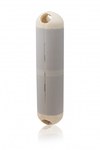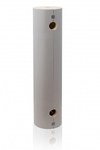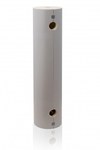Insulations for shell exchangers
(3)
Insulation for shell heat exchangers - the key to energy efficiency
Insulation for shell exchangers is a key element in heating and cooling systems. Their role in maintaining the right temperature cannot be overestimated. In our daily practice, we see how much influence they have on the efficiency of the installation. Selecting the right insulation is the basis for the effective operation of heat exchangers.
We offer a wide selection of insulation adapted to different types of exchangers. Our products meet the highest quality and safety standards. Among them you will find insulation for popular JAD models.
Types of insulation for shell heat exchangers
Our offer includes various types of insulation. Each of them has its own unique properties and applications. Here are the most popular types:
- Mineral wool insulation
- Rubber insulation
- Polyurethane insulation
- Polyethylene foam insulation
Mineral wool insulation is characterized by excellent thermal insulation properties. They are resistant to high temperatures and non-flammable. They are suitable for industrial installations and power engineering. Rubber insulation, on the other hand, is great for cooling systems. They prevent water vapor from condensing on the surface of pipes.
Polyurethane insulation offers excellent parameters with a small thickness. They are lightweight and easy to install. Polyethylene foams are an economical solution for applications at lower temperatures. Each type has its advantages, which we adapt to the customer's needs.
How to choose the right insulation for a shell exchanger?
The choice of the right insulation depends on many factors. The key is to take into account the exchanger's operating temperature. The ambient humidity and fire protection requirements are also important. Economic aspects and ease of installation are also important.
In case of high temperatures, we recommend mineral wool insulation. For cooling systems, rubber insulation will work well. For standard heating applications, polyurethane insulation is a good choice. In each case, we select the insulation thickness to the exchanger diameter.
Our company offers expert advice on the selection of insulation. We help determine the optimal solution for a specific installation. Thanks to this, the customer can be sure of the energy efficiency of their system.
Insulation for shell heat exchangers - our brands and products
In the Onninen offer you will find products of renowned brands. We especially recommend our own brands: Onnline and FXA. They are distinguished by an excellent quality to price ratio. They were developed with the needs of professionals in mind.
The JAD 3.18 heat exchanger insulation is one of our bestsellers. It provides effective thermal protection with compact dimensions. For larger installations, we recommend insulation for the JAD 6.50 exchanger. It guarantees minimal heat loss even in demanding conditions.
We recently used Onnline insulation for a large industrial plant project. The customer was impressed by the ease of installation and energy efficiency. This is an example of how our products work in practice.
Many customers ask us about the possibility of adapting insulation to non-standard exchangers. Thanks to a wide range of products, we are able to meet even the most demanding projects. Our specialists are available to help in selecting the optimal solution.
Our experience shows that properly selected insulation can significantly reduce energy costs. In the case of large industrial installations, savings can reach up to several percent per year. This shows how important a professional approach to the subject of insulation is.
Onninen recommends the use of high-quality insulation for all types of shell exchangers. They not only save energy, but also extend the life of the installation. The investment in good insulation pays off very quickly.
In the case of reorganization of heating systems, we most often encounter the need to replace old insulation. New materials offer much better insulation parameters. This translates into tangible benefits for users.
We invite you to contact our technical advisors. They will help you choose the optimal insulation for shell exchangers. Thanks to their knowledge and experience, you can be sure of the best choice for your installation.


